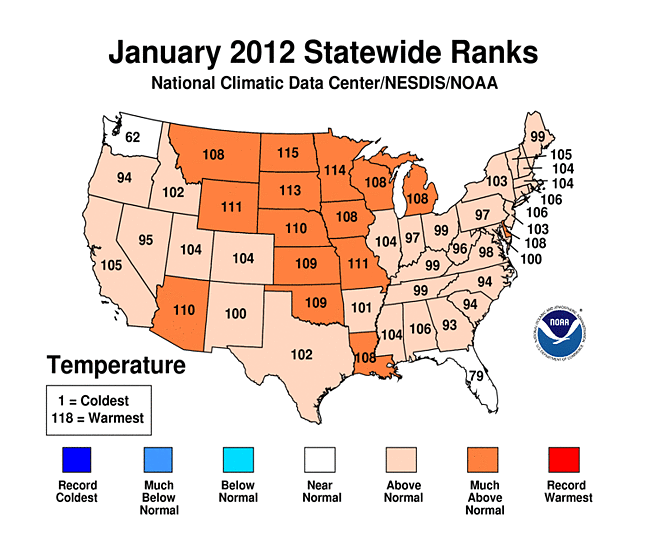Via James Fallows, here is the FlightAware track (and the KML) for yesterday's Boeing 787 test flight:

That. Is. Cool.
I remember traveling in the 1970s and 1980s, when no one could reliably answer this question until the plane actually left the runway. But today I'm at O'Hare while snow is falling, and it looks like my flight will in fact take off on time despite the snow and the lengthening list of delayed flights on the arrivals board.
How do I know?
First stop is the American Airlines website. Their flight status tool says my plane departs on time from gate K5. And the page has a link to "arriving flight information," which tells me that the plane I'm on will land in 10 minutes.
Oh, really? Yes, really, as Flight Aware's real-time tracker shows me. At this moment, the airplane taking me to San Francisco is heading straight for the O'Hare VOR about 70 km away. (It's over Joliet—no, wait, now it's over Naperville!)
The airline has done it right. By providing real-time information, they're putting me at ease. Even if the incoming plane were circling over Springfield, that would still help me by letting me plan how long I can sit here working before I have to schlepp to the gate.

Update: In the time it took to write this entry, my plane has arrived, and I can see it taxiing towards me right now. I am not making this up. That's not my plane, by the way. That's a plane being de-iced, to show you why I might be a little on edge about my actual departure time today.
That's the gist of an article in this month's Atlantic, profiling the work of biologist Jaroslav Flegr:
[I]f Flegr is right, the “latent” [Toxoplasma gondii] parasite may be quietly tweaking the connections between our neurons, changing our response to frightening situations, our trust in others, how outgoing we are, and even our preference for certain scents. And that’s not all. He also believes that the organism contributes to car crashes, suicides, and mental disorders such as schizophrenia. When you add up all the different ways it can harm us, says Flegr, “Toxoplasma might even kill as many people as malaria, or at least a million people a year.”
Flegr was especially surprised to learn, though, that the protozoan appeared to cause many sex-specific changes in personality. Compared with uninfected men, males who had the parasite were more introverted, suspicious, oblivious to other people’s opinions of them, and inclined to disregard rules. Infected women, on the other hand, presented in exactly the opposite way: they were more outgoing, trusting, image-conscious, and rule-abiding than uninfected women.
The idea that parasites affect our behavior is relatively new, but gaining ground. And T. gondii may not be the only one that affects human behavior. This is a bit of science to watch.
Zack Beauchamp, writing on Andrew Sullivan's blog, has a well-argued explanation of how the Obama administration is not threatening the religious freedom of the Catholic Church by enforcing regulations on health insurance coverage:
Allowing "conscience" exemptions whenever an employer doesn't feel morally clean when complying with regulations in principle neuters all regulation. The argument for allowing Catholic hospitals a pass on covering birth control has to rest or fall on the specifics of the case rather than a general commitment to protecting "voluntary communities."
This is where the case against the Administration's ruling is at its weakest. Birth control is for 98% of women the principal means of protecting a right central to their own liberty - the right to choose when to create a family. Chances are most women employed by Catholic universities and hospitals are part of the 98%. For these women, not having access to birth control renders a crucially important right meaningless.
I'm fine with religious freedom. I am not fine with religious organizations taking public money, and then claiming special conditions on how they'll accept it.
Maldives, an archipelago of 400,000 people with less than twice the area of Washington, D.C., has overthrown its government:
The ex-president of the Maldives said on Wednesday that he was forced to resign at gunpoint, despite earlier claims by the Indian Ocean resort islands' new leader that there had been no coup.
"Yes, I was forced to resign at gunpoint," Mohamed Nasheed told reporters after his party meeting a day after his resignation. "There were guns all around me and they told me they wouldn't hesitate to use them if I didn't resign.
The Maldives, one of the world's most high-profile luxury tourist destinations, installed Mohamed Waheed Hassan as president on Tuesday after the man credited with bringing democracy to the islands resigned, apparently under military pressure following a police mutiny. It was not immediately clear who was holding the guns.
The U.S. State Department, usually right on top of these things, has not yet issued a travel warning; however, the British Foreign Office has advised against travel to the capital, Male.
None of the lower 48 had their warmest January ever (Illinois had its 6th warmest), but according to the National Oceanic and Atmospheric Administration, January averaged out to be the 4th-warmest ever:

The average contiguous U.S. temperature in January was 2.4°C, 3.0°C above the 1901-2000 long-term average -- the fourth warmest January on record, and the warmest since 2006. Precipitation, averaged across the nation, was 46.9 mm. This was 9.4 mm below the long-term average, with variability between regions.
In contrast to the contiguous United States being much warmer than average, several towns across Alaska had their coldest average January temperatures on record -- Nome
(-27.0°C), Bethel
(-27.4°C) McGrath
(-33.6°C), and Bettles
(-37.6°C).
And none of the four Republican front-runners acknowledges anthropomorphic climate change theory...
Earlier today, Komen's head of public policy, Karen Handel, resigned from the organization, mischaracterizing her opponents as having mischaracterized her:
Karen Handel, the charity's vice president for public policy, told Komen officials that she supported the move to cut off funding for Planned Parenthood. She said the discussion started before she arrived at the organization and was approved at the highest levels of the charity.
"I am deeply disappointed by the gross mischaracterizations of the strategy, its rationale, and my involvement in it," Handel said in her letter. "I openly acknowledge my role in the matter and continue to believe our decision was the best one for Komen's future and the women we serve."
A source with direct knowledge of decision-making at Komen's headquarters in Dallas said the grant-making criteria were adopted with the deliberate intention of targeting Planned Parenthood. The criteria's impact on Planned Parenthood and its status as the focus of government investigations were highlighted in a memo distributed to Komen affiliates in December.
According to the source, who spoke on condition of anonymity for fear of repercussions, a driving force behind the move was Handel, who was hired by Komen last year as vice president for public policy after losing a campaign for governor in Georgia in which she stressed her anti-abortion views and frequently denounced Planned Parenthood.
Shorter version: Karen Handel is lying. But so are other people at Komen, who either can't see, don't understand, or don't care about the damage they've done to the organization by bringing naked politics into it. Then again, criticisms of Komen's politics and methods go back many, many years; their troubles this week may be less "implosion" and more "straw on the camel's back."
Meanwhile, on the other side of the country, the U.S. 9th Circuit Court of Appeals ruled today that Proposition 8 is unconstitutional. Writing for the court, Circuit Judge Stephen Reinhardt said,
Proposition 8 serves no purpose, and has no effect, other than to lessen the status and human dignity of gays and lesbians in California.... The Constitution simply does not allow for "laws of this sort."
More analysis later. For now, lots of people are wondering whether the law remains in force pending appeal, whether the Supreme Court will hear the case, and whether the bigots in California will lose now or in five years.
A man accused of rape in Alabama got into an online argument with the Jefferson County Sheriff's Office on the office's Facebook page:
U.S. Marshals took Dustin McCombs into custody today in Ohio, said Chief Deputy Randy Christian.
The U.S. Marshal's Gulf Coast Regional Task for in Birmingham shared information with their counterparts in Ohio who tracked down the fugitive.
McComb's was featured on the Jefferson County Sheriff Department's Facebook page as its "Creep of the Week" because of an outstanding forcible rape charge.
McCombs apparently decided that was a challenge, taking up a posting duel with the department on Facebook, according to the website Gizmodo.
Of course, McCombs has not been convicted of the crime that led to his arrest warrant, but wow is he stupid. The entire exchange is still available on Failbook, and worth a look. So is the sheriff's Facebook page, which seems like an effective use of social media by government.
Writer Matt Glassman wrestles with why Bradshaw didn't take a knee on the 1 in yesterday's game:
League wide, 99.4% of extra points were made this year. The Giants were 45 for 45. You think Brady has less than a 0.6% chance of leading a TD drive with a minute and two timeouts? Not a chance. According to the NFL win probability stat, the Pats had a 4% chance to win when they got the ball back. And they only had 1 timeout as it turned out. And win probability doesn’t take into account the individual team, or whether or not you have Tom Brady. Here’s the thing: football is a zero-sum game. If Belichek was correct to let the Giants score, then by definition the Giants were wrong to get into the end zone there. By the above math, the Giants gave the Pats a 24-1 chance to win, when they could have made it roughly a 199-1 chance. That’s right: by getting in the end zone, the Giants increased their chance of losing eightfold.
He goes on to outline how it was the wrong choice by the numbers, but probably the better choice for the individuals involved. Good stuff.
The Superbowl starts in a little over an hour, with weather in Indianapolis no one expected: clear skies and 9°C. In Chicago it's just a smidge cooler, but still a beautiful afternoon for February. Or for March, for that matter.
Parker gets one more walk before the game. Go Giants! (For why, see Robert Wright's decision tree on the subject.)